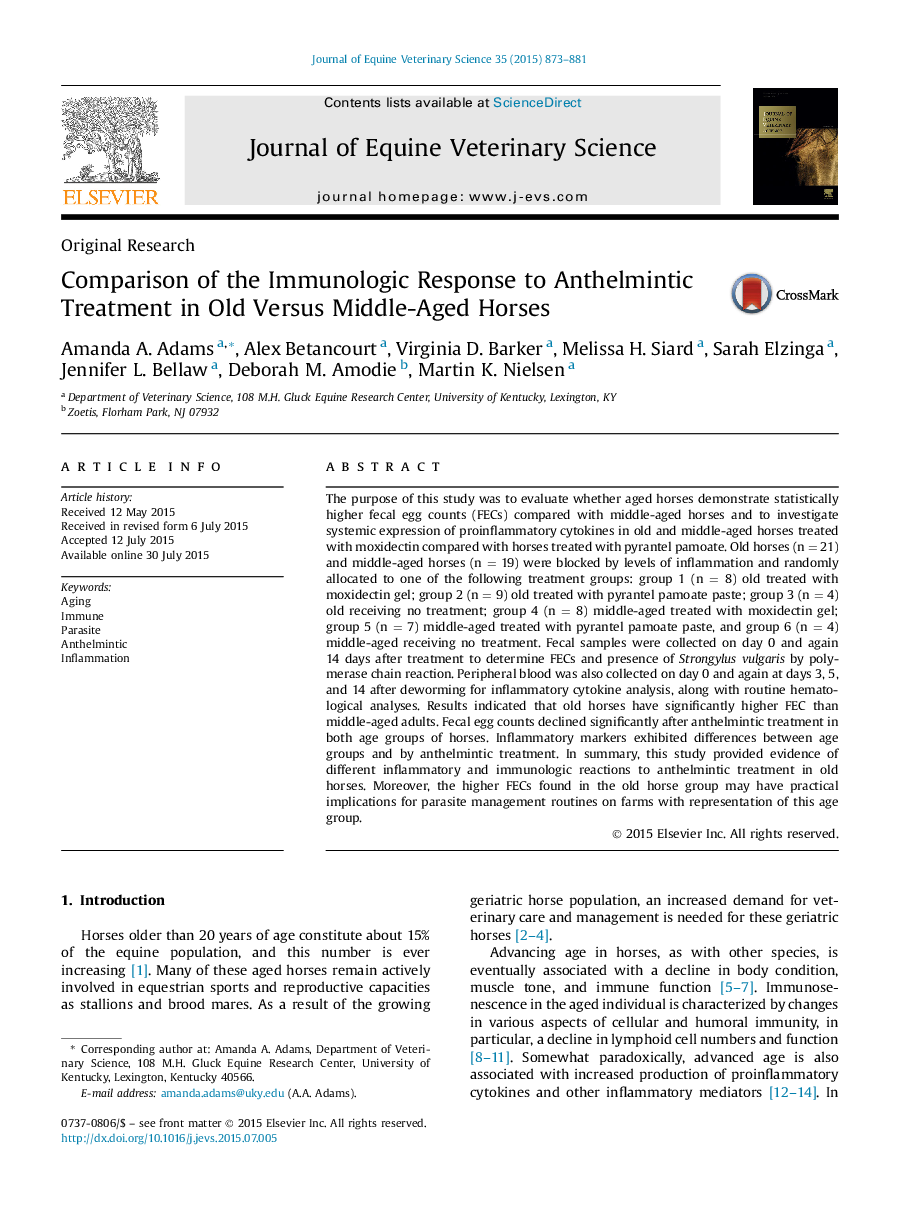| Article ID | Journal | Published Year | Pages | File Type |
|---|---|---|---|---|
| 2394736 | Journal of Equine Veterinary Science | 2015 | 12 Pages |
Abstract
The purpose of this study was to evaluate whether aged horses demonstrate statistically higher fecal egg counts (FECs) compared with middle-aged horses and to investigate systemic expression of proinflammatory cytokines in old and middle-aged horses treated with moxidectin compared with horses treated with pyrantel pamoate. Old horses (n = 21) and middle-aged horses (n = 19) were blocked by levels of inflammation and randomly allocated to one of the following treatment groups: group 1 (n = 8) old treated with moxidectin gel; group 2 (n = 9) old treated with pyrantel pamoate paste; group 3 (n = 4) old receiving no treatment; group 4 (n = 8) middle-aged treated with moxidectin gel; group 5 (n = 7) middle-aged treated with pyrantel pamoate paste, and group 6 (n = 4) middle-aged receiving no treatment. Fecal samples were collected on day 0 and again 14Â days after treatment to determine FECs and presence of Strongylus vulgaris by polymerase chain reaction. Peripheral blood was also collected on day 0 and again at days 3, 5, and 14 after deworming for inflammatory cytokine analysis, along with routine hematological analyses. Results indicated that old horses have significantly higher FEC than middle-aged adults. Fecal egg counts declined significantly after anthelmintic treatment in both age groups of horses. Inflammatory markers exhibited differences between age groups and by anthelmintic treatment. In summary, this study provided evidence of different inflammatory and immunologic reactions to anthelmintic treatment in old horses. Moreover, the higher FECs found in the old horse group may have practical implications for parasite management routines on farms with representation of this age group.
Related Topics
Life Sciences
Agricultural and Biological Sciences
Animal Science and Zoology
Authors
Amanda A. Adams, Alex Betancourt, Virginia D. Barker, Melissa H. Siard, Sarah Elzinga, Jennifer L. Bellaw, Deborah M. Amodie, Martin K. Nielsen,
